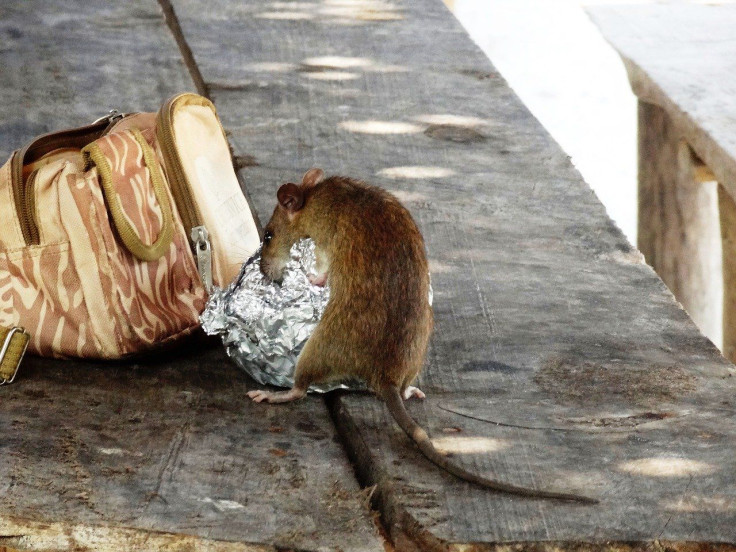CDC Warns Of 'Aggressive' Rodents, Rise In Sightings Amid COVID-19 Pandemic

KEY POINTS
- There has been an increase in reports of rodent sightings amid the COVID-19 restrictions
- With restaurants closed, rodents have turned more aggressive and even resorted to cannibalism
- The CDC advised the public to take precautions to prevent rodent infestations
The Centers for Disease Control and Prevention (CDC) warned the public about "aggressive rodent behavior" and a possible increase in their sightings as the coronavirus lockdowns are being lifted across the United States. People are being advised to take precautions to avoid rodent infestations and possible exposure to rodent-borne diseases.
As restrictions all over the country are slowly being eased and establishments are starting to re-open, the CDC issued the warning, saying rodent populations typically decrease during natural disasters then increase once businesses return to normal. Although the coronavirus restrictions are not quite the same as natural disasters, there has been a recent increase in rodent activity.
"Some jurisdictions have reported an increase in rodent activity as rodents search for new sources of food," the CDC said. "Environmental health and rodent control programs may see an increase in service requests related to rodents and reports of unusual or aggressive rodent behavior."
In fact, soon after the coronavirus restrictions led to many restaurants having to close down, sightings of aggressive rodents began to increase. In mid-March, for instance, a video of rats taking over the streets of New Orleans surfaced.
According to experts, the restaurant closures led to the rodents having to search for food sources other than the restaurants they have relied on for generations. Without their usual food sources, the rodents have turned to aggression and even cannibalism.
Rats are known to harbor over 30 diseases that can be directly or indirectly spread to humans. As such, the CDC noted the importance of eliminating the conditions that may possibly attract or even support rodents.
For instance, it is important for homes and businesses to fill small holes or gaps by which the rodents can enter. Important places to search for possible rodent access areas include around doors, windows and vents, in the roof, in crawl space vents, and around electrical, plumbing or gas lines.
It is also important to keep homes and business clean, since food waste can attract rodents while clutter can act as rodent nesting sites. As such, it is important to clean up spilled food right away, thoroughly wash dishes and other utensils right after using and to keep outside cooking areas clean. Garbage bins must also be kept completely covered to avoid attracting rodents, while hay, garbage cans and woodpiles are best kept far from the home and at least a foot off the ground to prevent them from becoming possible nesting sites.
Since fleas are also common in rodents and may pass rodent-borne diseases, areas with significant rodent infestation may also consider using Environmental Protection Agency listed repellants to minimize exposure.
© Copyright IBTimes 2025. All rights reserved.






















